Learn English
Cook Up Your English Skills: A Recipe for Language Learning
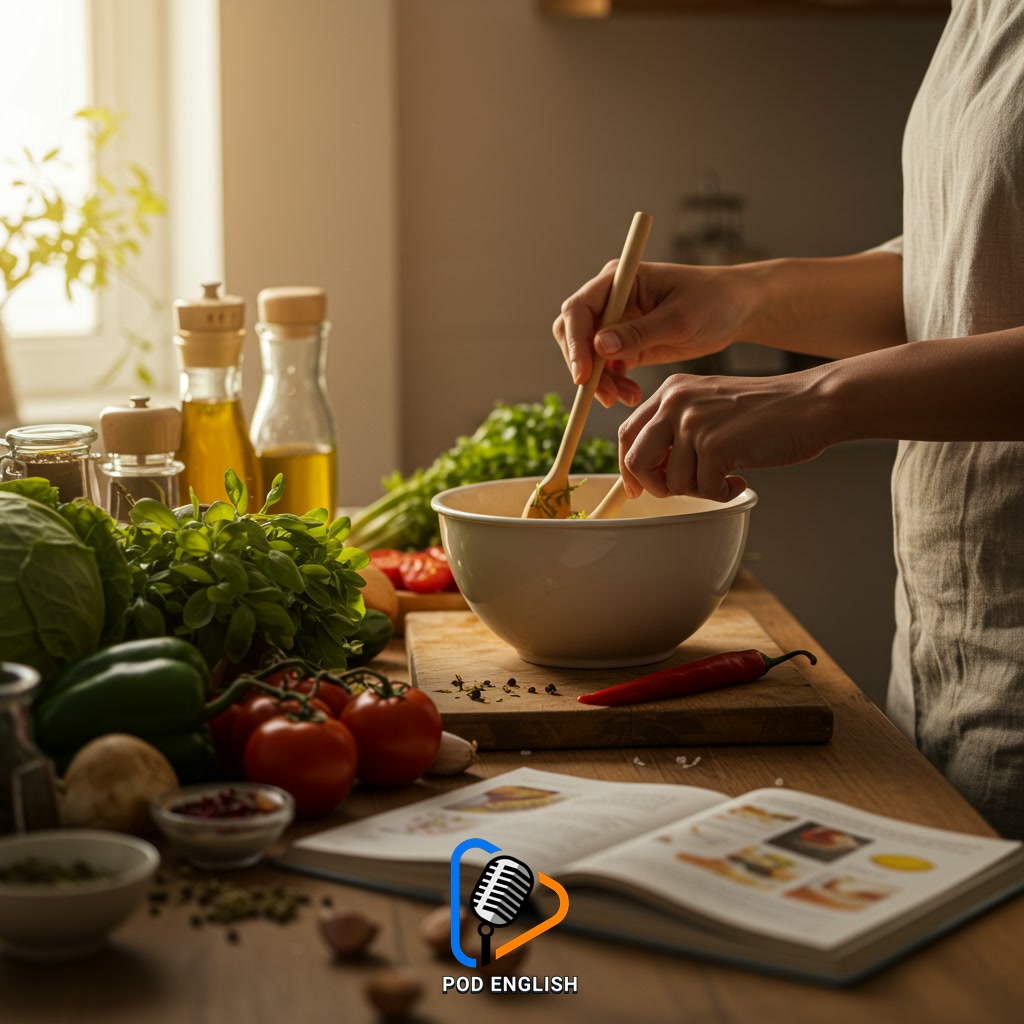
This content presents a structured approach to mastering the English language. It offers a practical, step-by-step guide, much like following a recipe, to build and enhance your English abilities. Discover the essential ingredients and techniques needed to effectively improve your communication skills. Follow this plan to successfully prepare and serve up your best English.
Table of Contents
- Section 1: Introduction: Setting the Table for English Learning
- Section 2: Gathering Your Ingredients: Essential Components of English
- Section 3: Prepping the Ingredients: Effective Study Methods and Resources
- Section 4: Mixing and Cooking: Practicing Your English Skills
- Section 5: Adding Flavor: Immersion and Cultural Context
- Section 6: Serving Up Your Skills: Using English in Real-Life Situations
- Section 7: The Finished Dish: Maintaining and Refining Your English Recipe
Section 1: Introduction: Setting the Table for English Learning
Welcome to “Cook Up Your English Skills,” your guide to mastering the English language. Think of this journey not just as studying, but as preparing a delicious meal. Every great recipe starts with setting the table and gathering your ingredients. In this introductory section, we are doing just that. We’ll lay out the basic concepts and prepare our minds for the learning process ahead. This is where we establish the foundation, understand the ingredients (like vocabulary and grammar), and get ready to mix, bake, and serve up fluent English. By setting the table now, we ensure we have everything needed for a successful and enjoyable learning experience. Let’s get started on this exciting culinary adventure in language!

Introduction: Setting the Table for English Learning
Section 2: Gathering Your Ingredients: Essential Components of English
Every great recipe starts with selecting the right ingredients. For learning English, these essential ingredients aren’t flour or sugar, but the core components that build your communication skills. Think of vocabulary as your pantry filled with words, grammar as the structure that holds everything together, and the four skills – listening, reading, speaking, and writing – as the techniques you use to combine and transform these ingredients. Just like a chef needs good quality ingredients and knowledge of how to use them, you need a solid foundation in these areas to ‘cook up’ fluent English. Gathering these fundamental elements is the crucial first step before you begin the process of mixing and preparing your language abilities. This section will help you identify and understand what these vital ingredients are.
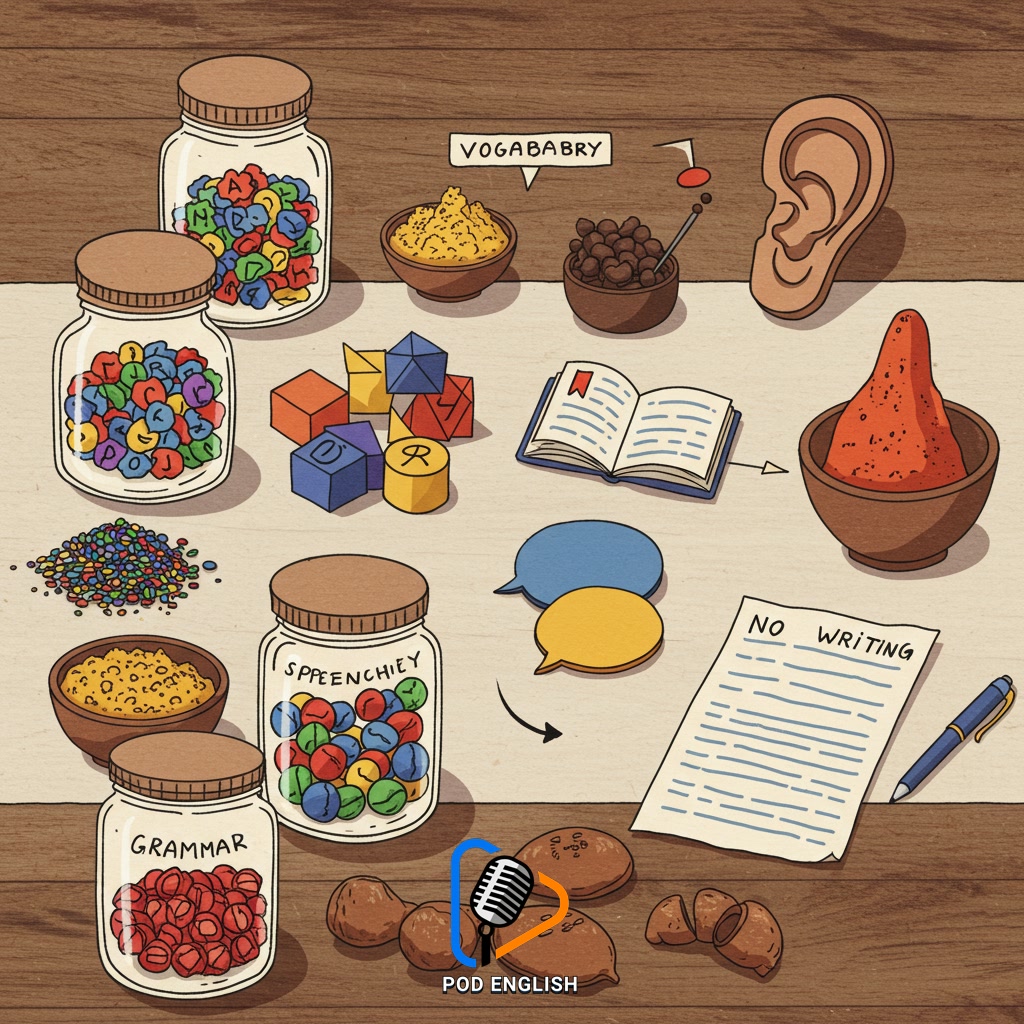
Gathering Your Ingredients: Essential Components of English
Section 3: Prepping the Ingredients: Effective Study Methods and Resources
Following the idea of ingredients, “prepping” them for your English learning recipe involves identifying and organizing the most effective study methods and resources. This stage is crucial for ensuring you have the right tools and techniques readily available. Think about selecting high-quality ingredients: choose reputable textbooks, language learning apps, online platforms, or authentic materials like news articles and podcasts that match your current level and learning style. Prepping also means understanding how to use these resources efficiently, perhaps by setting up a study schedule, organizing digital files, or finding language exchange partners. Effective methods might include using flashcards for vocabulary, practicing speaking regularly, or engaging in active listening. Just as a chef prepares vegetables before cooking, you must prepare your learning environment and materials to make the most of your study time.
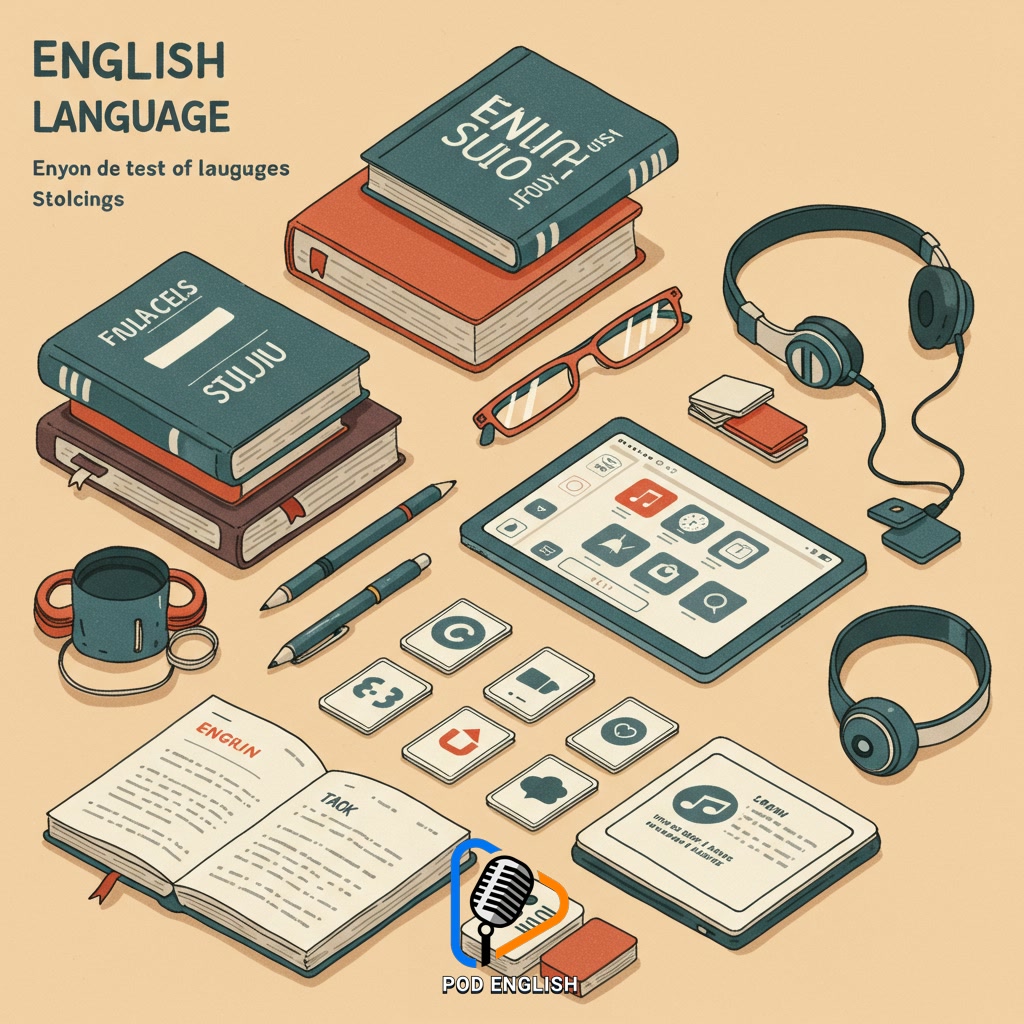
Prepping the Ingredients: Effective Study Methods and Resources
Section 4: Mixing and Cooking: Practicing Your English Skills
Following the preparation of your learning “ingredients,” the next vital step is “Mixing and Cooking,” which means actively practicing your English skills. This stage is where you combine everything you’ve learned – vocabulary, grammar, pronunciation, and study techniques – and put them into action. Don’t just collect knowledge; use it! Engage in real conversations, write emails or stories, listen to podcasts, read articles, and do exercises. Think of it as taking all those prepped ingredients and actually cooking the dish. Practice transforms passive knowledge into active ability. Regular, consistent practice is the heat that brings all the flavors together, refining your skills and building confidence. Embrace this phase; it’s where your English truly starts to come alive.
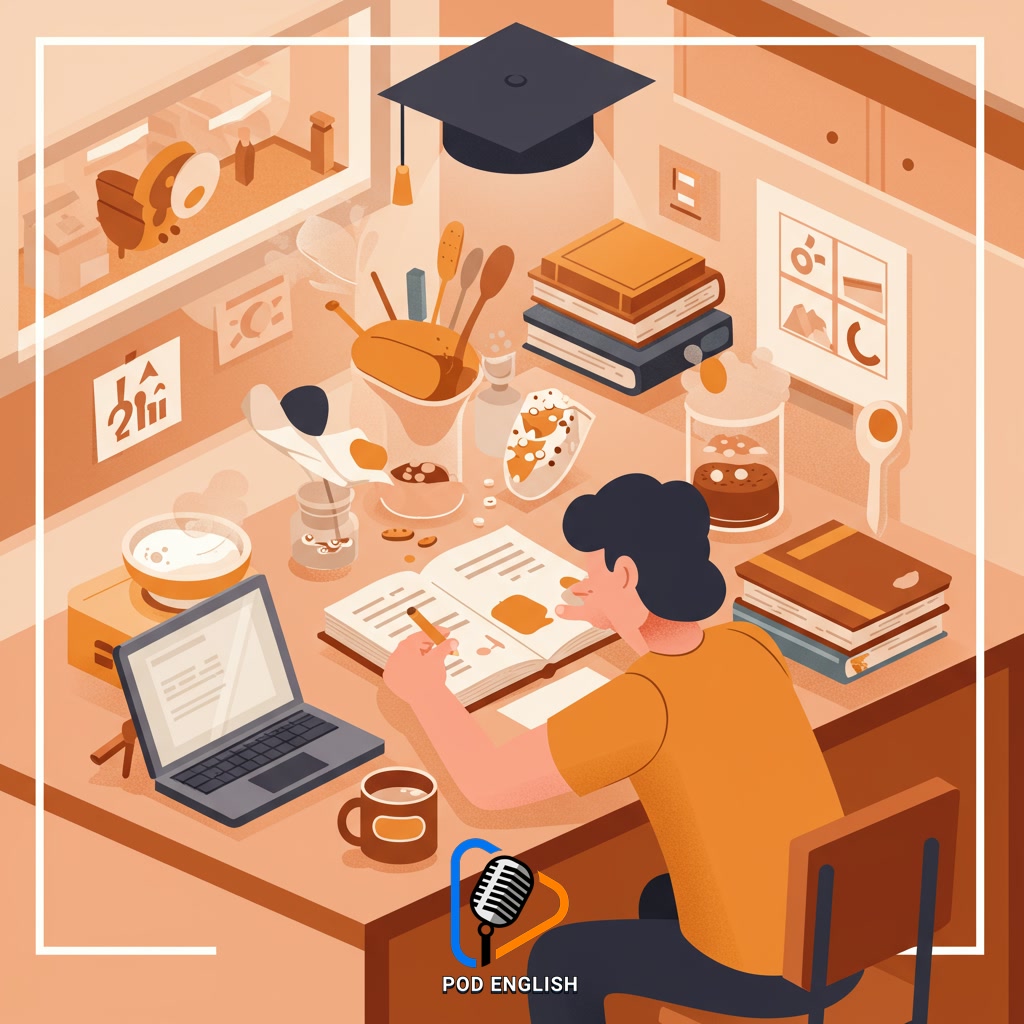
Mixing and Cooking: Practicing Your English Skills
Section 5: Adding Flavor: Immersion and Cultural Context
Okay, so after you’ve mixed and cooked your basic English skills, it’s time to “Add Flavor.” This means going beyond just the mechanics of grammar and vocabulary. It’s about immersing yourself in the language and understanding its cultural context. Think of it like adding spices and herbs to your dish – it makes it richer and more authentic. Immersion involves surrounding yourself with English as much as possible: watching movies and TV shows, listening to music and podcasts, and trying to interact with native speakers. Understanding the cultural context means learning about the customs, history, and perspectives of English-speaking people. This helps you understand nuances, idioms, and how language is used in real-life situations, making your English much more natural and effective.
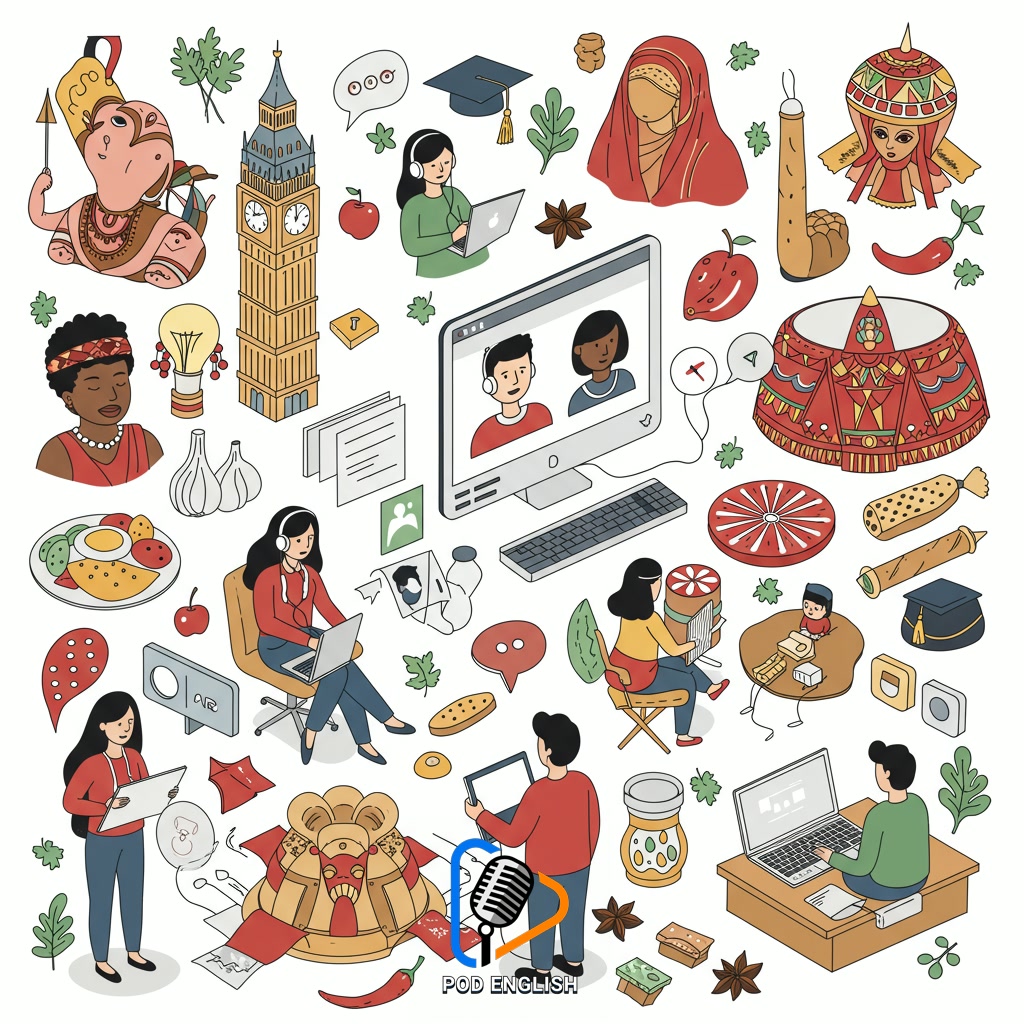
Adding Flavor: Immersion and Cultural Context
Section 6: Serving Up Your Skills: Using English in Real-Life Situations
Okay, you’ve built your foundation and added richness to your English. Now comes the most exciting part: “Serving Up Your Skills.” This final stage is all about taking everything you’ve learned – your vocabulary, grammar, pronunciation, and cultural understanding – and using it actively in real-world situations. Think about conversations with native speakers, participating in meetings, writing emails, navigating travel, or simply chatting with friends. This isn’t just practice; it’s the actual performance, where you gain confidence and fluency by putting your skills to work. Don’t be afraid to make mistakes; they are natural and provide valuable learning opportunities. The goal is effective communication and connection. Embrace these opportunities to speak, listen, read, and write in authentic contexts, and watch your English truly come alive.

Serving Up Your Skills: Using English in Real-Life Situations
Section 7: The Finished Dish: Maintaining and Refining Your English Recipe
You’ve successfully blended your ingredients and served up your English skills. Now, like any great chef knows, the work isn’t entirely done. “The Finished Dish” stage is about maintaining the quality of your English and continually refining it. Language learning is a lifelong journey, not a destination. This means regular practice is key to preventing your skills from getting stale. Actively seek opportunities to use English daily – read, listen, speak, and write. Furthermore, refinement involves identifying subtle areas for improvement, expanding your vocabulary with more nuance, and mastering complex grammatical structures. Think of it as adding that perfect garnish or adjusting the seasoning – small touches that elevate the overall result. This ongoing process ensures your English remains fluent, accurate, and ready for any occasion.
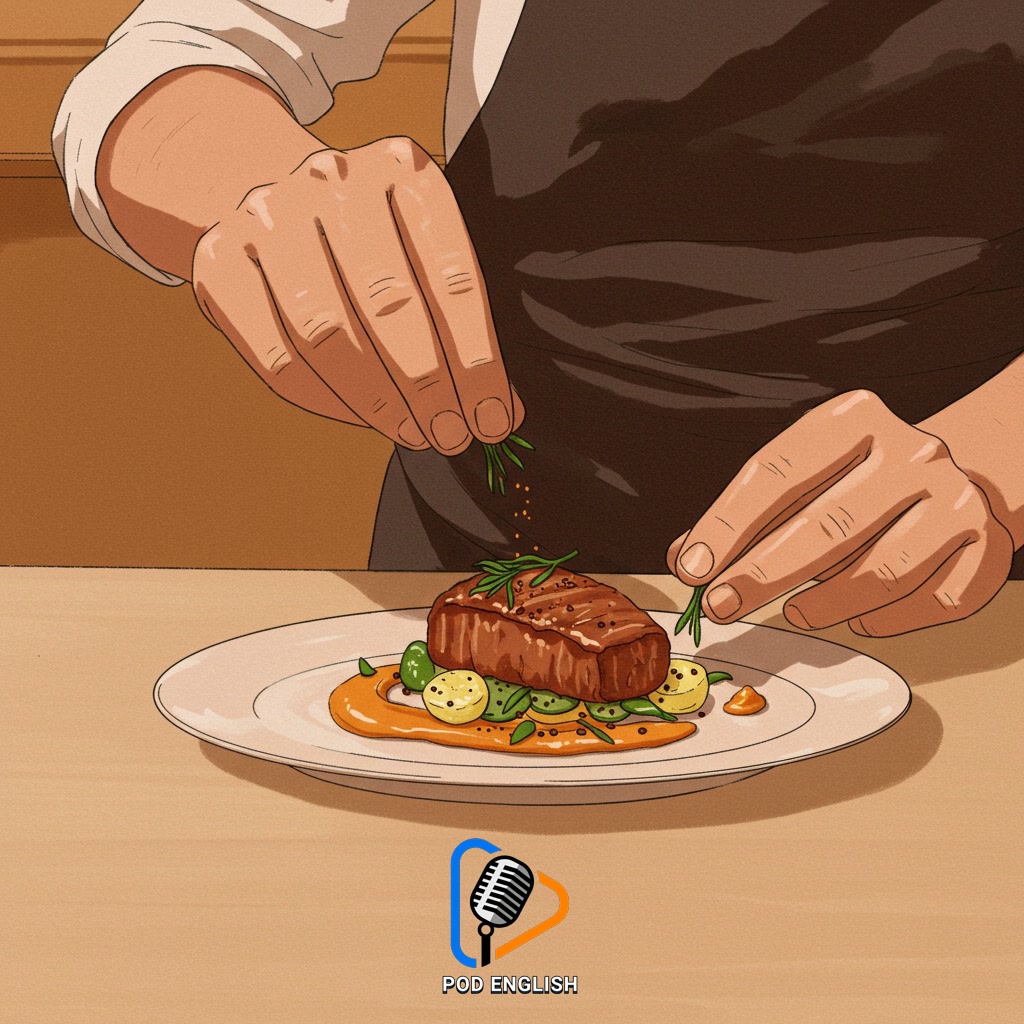
The Finished Dish: Maintaining and Refining Your English Recipe













